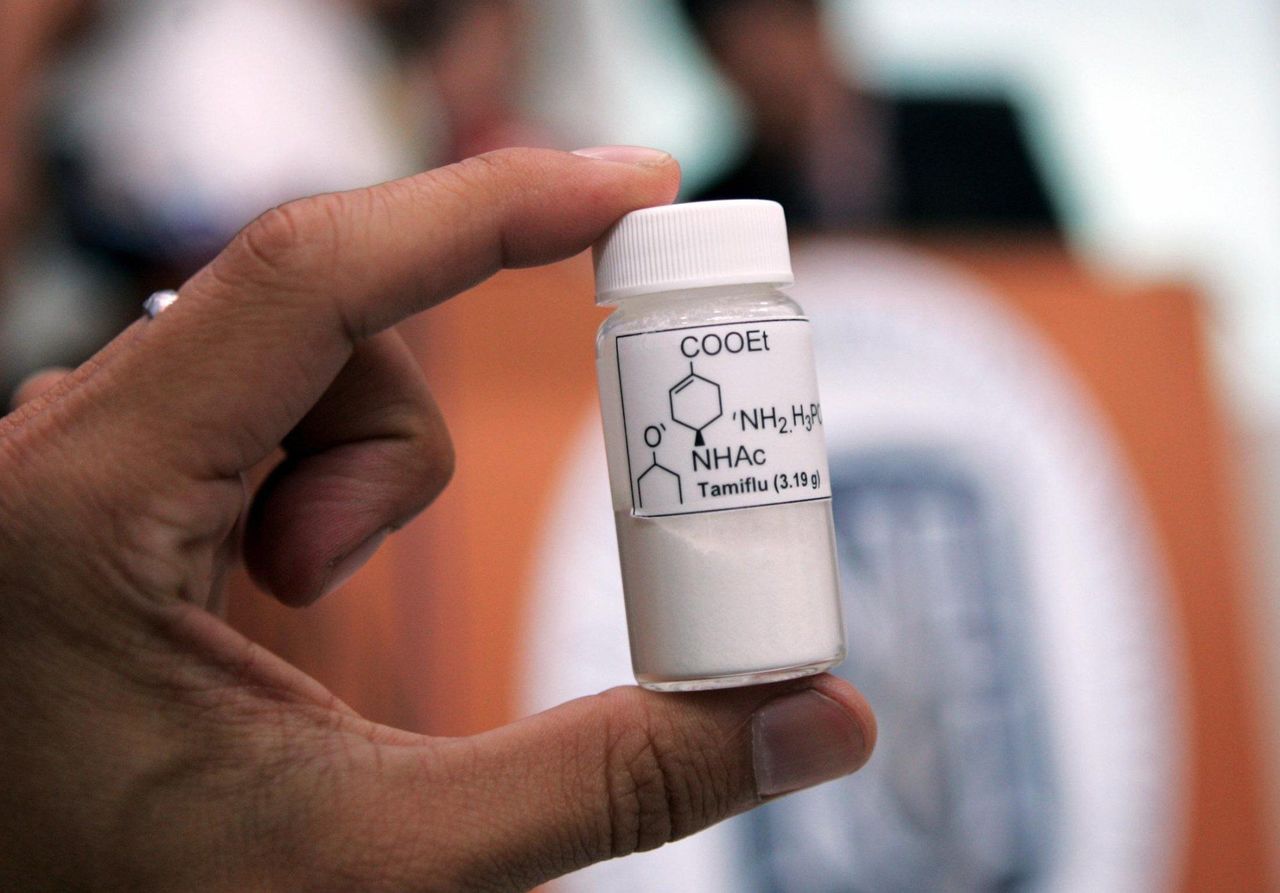Hong Kong News

As Hong Kong struggles with shortage of drug Tamiflu, should residents worry?
The mask mandate helped reduce the spread of influenza – but the scrapping of face coverings in Hong Kong last month led to a later-than-normal arrival of the flu season and children’s wards in public hospitals have since been overwhelmed with cases.
The rapid rise in infections has also caused a shortage of flu drug Tamiflu in the private sector. Many family doctors have warned stocks are running low.
But the makers of the drug on Sunday said they would alleviate the shortage, which had been expected to last until the end of June, with a high-priority delivery before the end of next month.
But should Hongkongers be worried?
The Post takes a deeper look at the problem and weighs up the alternatives.
 Swiss pharmaceutical giant Roche has promised an urgent shipment of Tamiflu to head off a shortage in Hong Kong.
Swiss pharmaceutical giant Roche has promised an urgent shipment of Tamiflu to head off a shortage in Hong Kong.
1. What is Tamiflu and who needs it?
Tamiflu, the brand name for oseltamivir, is an antiviral drug used to treat and prevent influenza in high-risk groups, including children aged five or under, those aged 60 or above, the immunocompromised and people with chronic illnesses.
William Chui Chun-ming, president of the Society of Hospital Pharmacists of Hong Kong, said the drug could help patients recover faster and lower the risk of complications, including encephalitis and pneumonia.
The full course of treatment takes five days and must start inside 48 hours of the first symptoms. Tamiflu in suspension form is prescribed for flu patients who have difficulty swallowing pills.
For people in low-risk groups, over-the-counter pain relief medicine such as paracetamol is adequate.
2. Why is Tamiflu in high demand?
The demand for Tamiflu has risen since Hong Kong ended its mask mandate on March 1, triggering a rise in flu infections.
The Department of Health said 77 per cent of cases were influenza A (H1), which affects children and adults aged between 50 and 64 more than other variants.
The latest information from the Hospital Authority showed that the paediatric inpatient bed occupancy rate in hospitals had stuck around the 80 per cent mark in recent weeks.
Dr Patrick Ip Pak-keung, of the University of Hong Kong’s paediatrics and adolescent medicine department, attributed the influx of young patients to limited exposure to viruses over three years of Covid-19.
But he predicted the number of cases would ease over the next few weeks because the flu virus would be less active in warmer weather.
3. How severe is the city’s shortage of Tamiflu?
Many private clinics reported low stocks of Tamiflu in liquid form, but sufficient supplies of capsules.
“The manufacturer would not produce a lot of suspension in the first place due to the short shelf life, and clinics would control the amount they bought to prevent wastage,” Chui explained.
He added the shelf life of the bottled suspension was two years, but capsules could last for seven to 10 years.
Health authorities said they had a stockpile of 11 million doses of antiviral drugs, 90 per cent of which was oseltamivir.
Roche, the Swiss manufacturer of Tamiflu, earlier said the shortage of the drug in liquid form would last until June, but the supply of capsules was stable.
But it has now promised it would ship in extra supplies of the drug, with an urgent delivery scheduled for the end of May.
4. Should we be worried by the shortage?
Chui reassured the public that the lack of Tamilfu in solution was not a problem, as it was only needed for high-risk patients with swallowing difficulty. He explained that pharmacists or carers could dissolve the contents of Tamiflu capsules in water, juice or syrup to get a dose, a route recommended by the manufacturer.
“The drug comes with a guide to teach people how to make a solution on their own,” he said, “It’s very easy – all you need to do is open the capsule and add the contents to water.”
He added manufacturers of generic Tamiflu could be encouraged in the long run to register their products in Hong Kong to give clinics more choice.
The health authorities said they could provide the drug to the private sector to ensure a continuous supply during a shortage.
5. How did private doctors cope with the shortage of Tamiflu solution?
Dr Cheng Chi-man, the chairman of the Hong Kong Medical Association, said his clinic also had a shortage of the suspension and referred patients who needed it to public doctors.
He said people making a suspension out of capsules was “not ideal”.
“The biggest problem is the dosage. It’s not easy for them to control the amount of drug and water precisely,” he explained.
Cheng added Hongkongers seemed to have a lower awareness of flu after three years of Covid-19 because many who had upper respiratory system infection symptoms did not get themselves tested.
Lam Wing-wo, a family doctor, said his clinic had dissolved powdered Tamiflu from capsules into a suspension for children’s prescriptions, but the stock of capsules was running low.
“Many doctors did not expect the demand to surge so quickly and did not procure a lot in advance,” he added.
Lam said that although the makers had promised a steady supply of the drug he was worried there could be hiccups in delivery, which were common as the world recovered from coronavirus-related disruptions to supply chains.
He added that many paediatricians had warned against overuse of Tamiflu because of the risk of developing drug resistance and appealed to parents to only use it if prescribed by their doctor.











